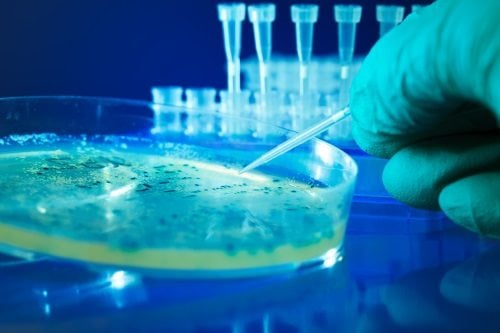A collaborative study by researchers on the Norwich Research Park has indicated how certain probiotic bacteria can help reduce infection by pathogenic E. coli.
Previous clinical studies have suggested that certain probiotic bacteria could prevent pathogenic bacteria from infecting the human gut.
In particular, one common type of bacteria found naturally in our gut, the lactobacilli, can protect infants from infection by enteropathogenic E. coli (EPEC) – a major cause of foodborne disease in infants worldwide.
To better understand the mechanisms of this protective effect, Dr Stephanie Schüller from the Institute of Food Research (IFR) and the University of East Anglia looked in detail at how Lactobacillus reuteri, a well-studied gut bacterium, affected EPEC adherence to different human intestinal cells.
Her group collaborated with IFR’s Dr Nathalie Juge, an expert in mucus which is secreted by cells lining the gut and providing a niche for commensal bacteria and a natural barrier against infection.
A number of infectious or inflammatory diseases are associated with alterations in the mucus layer.
The researchers also worked with the Gastroenterology Department from the Norfolk and Norwich University Hospital on human small intestinal biopsies.
They found that Lactobacillus reuteri can inhibit EPEC binding to the gut lining.
The results varied across different cell types studied depending on whether they produced a mucus layer or not, highlighting the need to choose a suitable model system when studying these complex bacterial interactions.
The effects also varied depending on the L. reuteri strain used.
This will have real connotations for the choice of potential probiotic strains for therapies or treatments – in particular for people with conditions where their gut mucus may be compromised.










